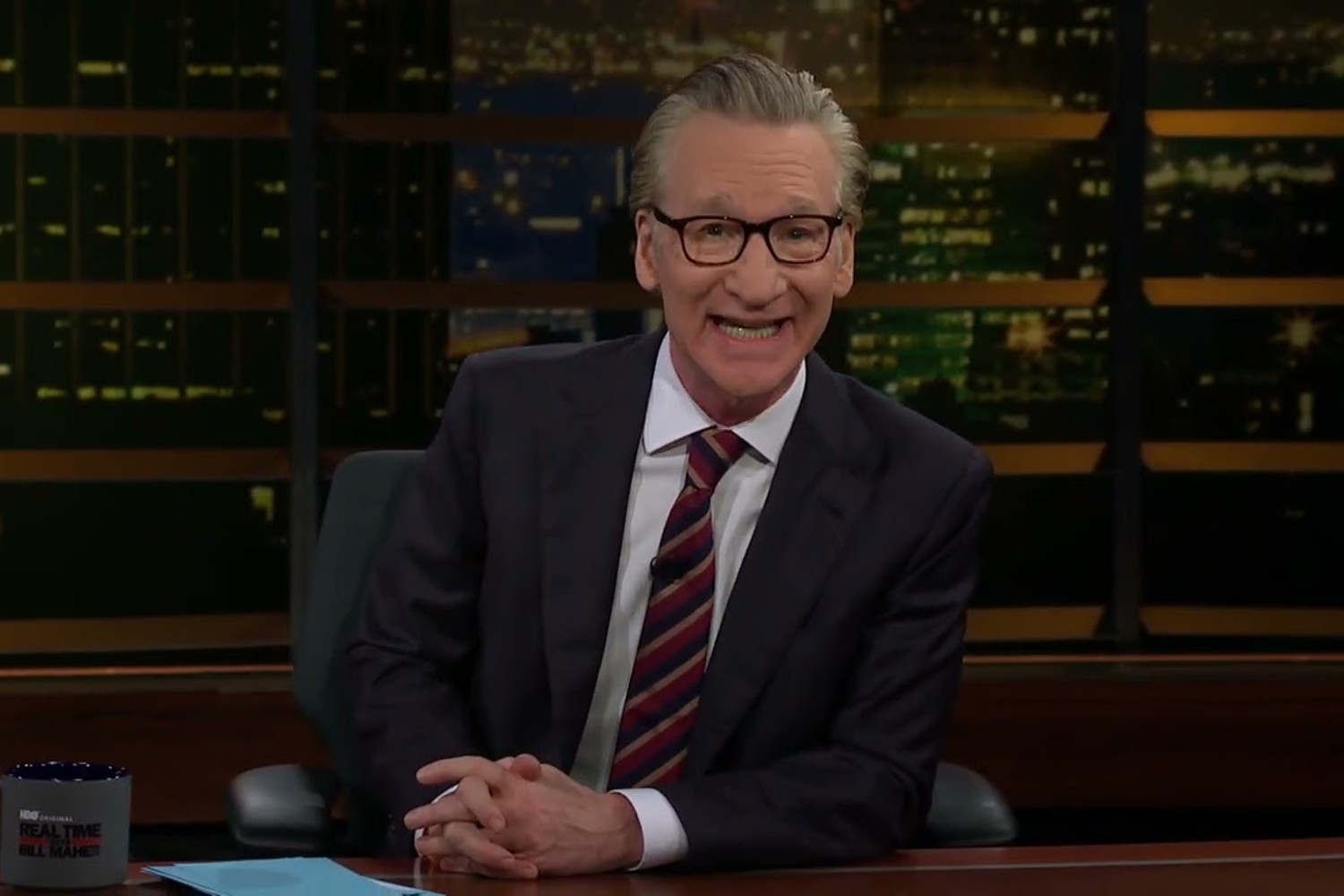With Election Day less than a month away, it was no surprise that this week’s Real Time With Bill Maher largely focused on different aspects of the presidential election. This time out, though, the most interesting moments came when Maher and his guests went to unexpected places — as took place early on, when Maher wound up in a heated theological debate.
That was the result of Maher interviewing The Atlantic’s Tim Alberta, there to discuss his book The Kingdom, the Power, and the Glory: American Evangelicals in an Age of Extremism. Alberta was quick to point to his own experiences in that community, referring to “the white evangelical movement” as “the world I came out of.”
Some of Maher’s early questions zeroed in on the evangelical community’s relationship to politics, and to Donald Trump’s presidential campaign. “You do suspect at a certain point that some of these people use ‘evangelical’ or ‘Christian’ more as a cultural identity than a doctrinal, theological identity,” Alberta said. He went on to address some of the contradictions that emerged from what Alberta called “the marriage of bad history and bad theology. And one is a prerequisite for the other.”
Things took an interesting turn when Maher quizzed Alberta about his own beliefs. Alberta responded that researching evangelicals had made his own faith stronger. Then the two butted heads when it came to Jesus as a historical figure, and whether you could accept that without also viewing him as a divinity.
Maher said that he was “on that page” in terms of viewing Jesus as a moral philosopher, and went on to echo Thomas Jefferson in that respect. ”That doesn’t mean that I have to accept that a dove flew down and banged his mom,” he added. Alberta pushed back against this; the give-and-take was interesting to watch, though, and Maher’s comment at the end of the interview — “I could talk about this all night with you” — indicated his appetite for the debate.
For the evening’s panel, CNN host Laura Coates and radio host Buck Sexton joined Maher. Coates and Sexton have — to put it mildly — very different takes on politics, but their exchange was relatively civil, at least to start out. It got more contentious in the second half, as Sexton rattled through a list of right-wing talking points, including swings at immigrants and trans people and Coates raised objections.
When she did so, Sexton saw an opportunity to advance one of his arguments, saying, “This is why Kamala will lose, by the way.”
“Why?” Coates responded. “Because an articulate woman made a point?”
Over the course of the episode, Sexton repeatedly referred to the Democratic Party as the “Democrat Party,” to the point where you could probably have turned it into a drinking game. If you actually did that, though, you might have blacked out by episode’s end. By the end of the panel, Maher had finally had enough and corrected him.
During the panel, Maher also brought up the fact that, in his words, “Trump is going for the bro vote.” Much of the panel’s second half focused on that, with Maher at one point observing that men “do the more dangerous jobs.”
Coates was having none of it. “You’re right,” she said. “Your job is very dangerous at this table.” If the audience reaction was any indication, she made the strongest impression for the night.
This Week’s “Real Time With Bill Maher” Covered the Local and the Global
Along with plenty of discussion of AISome other notable moments from the episode:
- Maher on Alex Jones’s hurricane-related conspiracy theories: “An idea so dumb even the Rock hasn’t made it into a movie.”
- Maher on Charmin’s claims about its products: “It’s like Jesus with the loaves and fishes, except it’s toilet paper and your ass.”
- Maher on Elon Musk: “My advice? Longer shirts and less jumping, but hey.”
- Maher on Chappell Roan: “In just a few months, she went from a struggling artist to getting 3 billion plays on Spotify, netting her 11 cents.”
- Once again, real life turns out to be more bizarre on its own than most comedy. This week’s example: the political controversy over a Snoopy fan account’s Trump endorsement.
This article was featured in the InsideHook newsletter. Sign up now.
